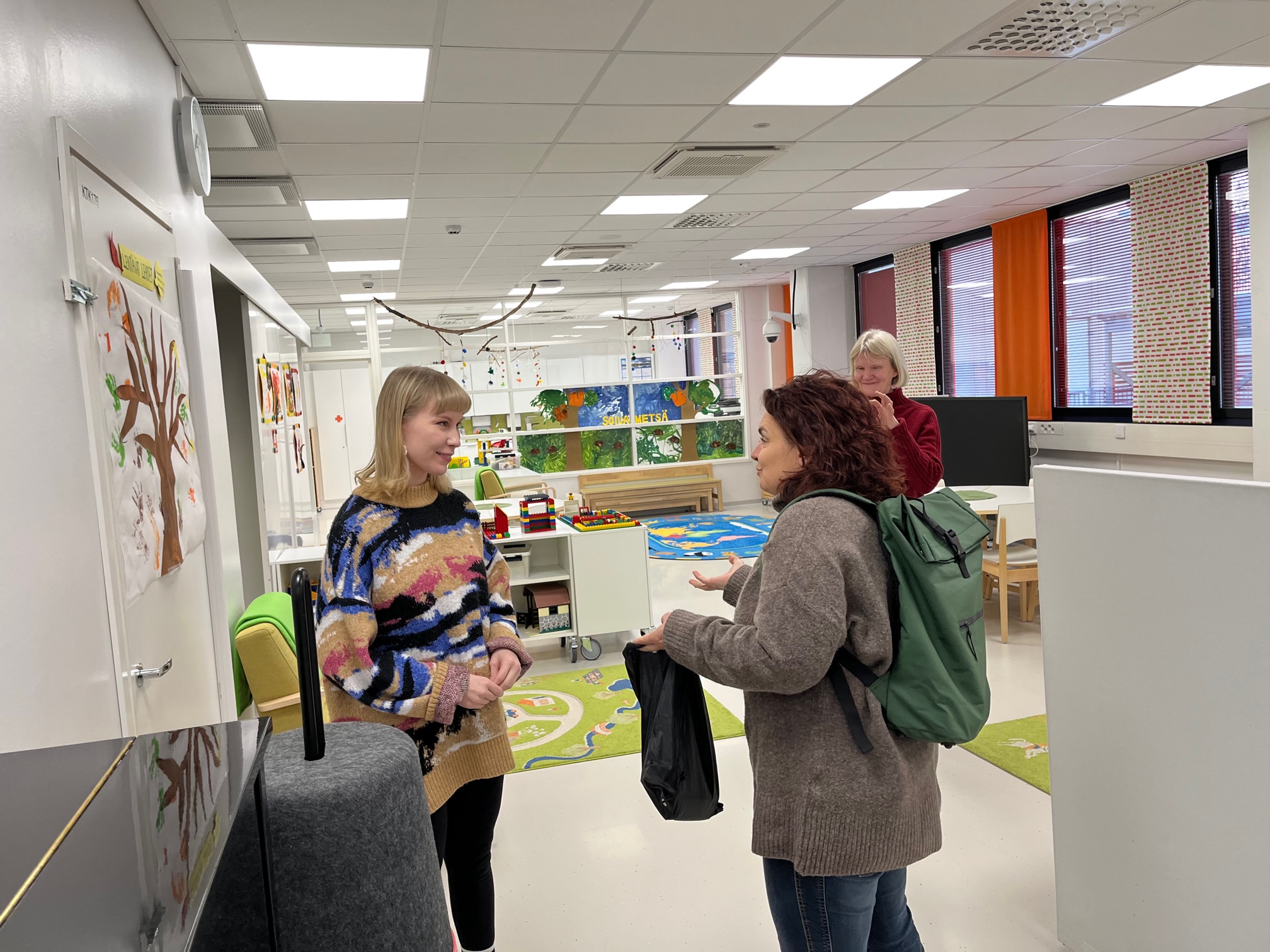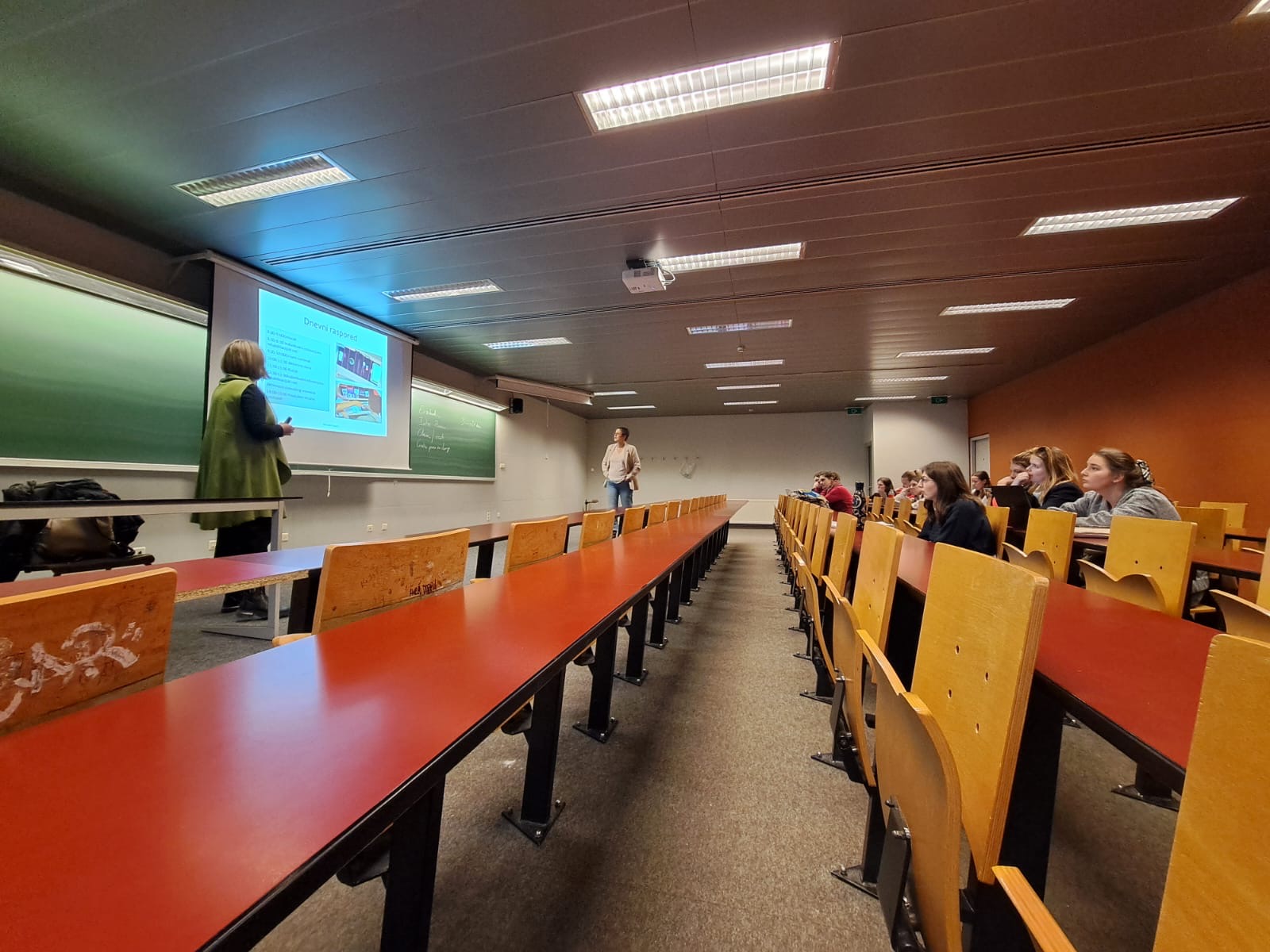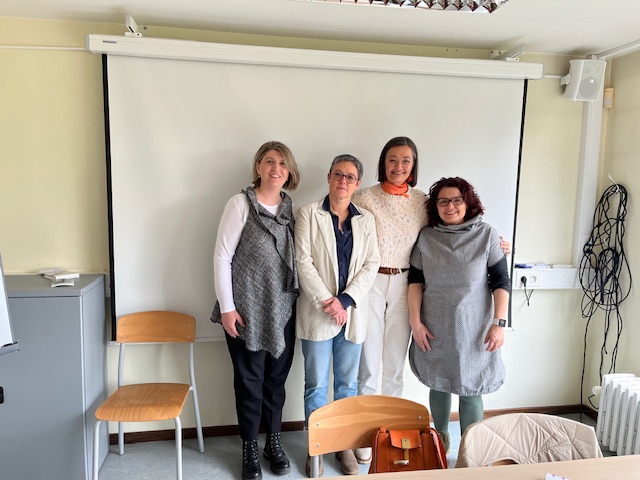The UNIC website uses cookies to improve your experience. Read our full Cookie Policy here.
Dr. Sonja Alimović currently works at the Department of Visual Impairments, Faculty of Education and Rehabilitation Sciences at the University of Zagreb. Together with her PhD candidate Martina Celzić, Dr. Annick Comblain from the University of Liege and Dr. Riikka Sirkko from the University of Oulu, she has been working on a project to collect preliminary data about communication of children with multiple disabilities and their adult communication partners in different settings.
Edited excerpts from an interview:
What inspired you to apply for a UNIC seed fund?
I work in a field of research that is very practice-based but where only a few experts are active in my native country, Croatia.
When I received the call for the UNIC Seed Fund from the University of Zagreb, I was delighted to see that this call for projects can involve both academics from the university and those working in practice and help us to build an even more extensive network with researchers from universities from the UNIC Alliance and practitioners from their countries.
When we conduct research projects, we usually involve our practitioners as subjects or ask for their consent to conduct the research in their institutions. We rarely have the opportunity to be equal partners. Doing engaged research means treating our societal partners as equal collaborators. In this way, we can conduct research activities more efficiently and put the results of our research into practice much more quickly.
 At a kindergarten in Oulu, Finland .
At a kindergarten in Oulu, Finland .
What have you learned from collaborating with other researchers from UNIC universities?
Through the visits to our project partners from the UNIC universities we also broadened our way of thinking about many things related to our work. Discussing the education system for learners with disabilities with our partners from Oulu, Finland and Liège, Belgium gave all of us new insights and inspiration. A colleague of mine who works in a Centre for Learners with multiple disabilities has already started to implement some of these ideas in her work. I have already presented the comparison of the different education systems to my colleagues at the Faculty and the Education and Teacher Training Agency. During my university visits, I have also noticed some possible improvements we can implement in our faculty. For example, some upgrades in spatial design improve students' quality of life, teaching methods, and classroom design.
What have you learned from collaborating with societal partners?
All of us who work in universities have learned a lot about the organisation of learners' daily activities, the organisation of activities, and the challenges and guidelines for working with families of learners with multiple disabilities. A colleague from the Centre for Rehabilitation gave us great insight and recommendations on conducting our research activities, encouraging parents to get involved, and explaining to learners what we are doing and why. In most cases, colleagues from the societal partners knew best what and how to do research activities with learners and what is and is not possible in practice.
 Presenting on the project in Liege, Belgium.
Presenting on the project in Liege, Belgium.
Why should others embark on an Engaged Research journey?
Introducing a new way of working in practice and changing your usual way of working can be challenging and require extra effort, so our practitioners might resist new ideas. They may even feel that no one is asking about essential issues that affect them and their daily work. In engaged research, everyone works together to identify needs, study and implement the new knowledge. Everything becomes more meaningful for all partners, and they become more motivated to carry out all research activities, from the idea to the design to implementing the new knowledge in practice.
 With the vice dean of research at the University of Liege.
With the vice dean of research at the University of Liege.
How did you include this project in your teaching practice?
After our stay in Oulu, Finland, I included the topic "Educating learners with multiple disabilities in Finland" in one of my existing master’s level courses. As part of the topic, I describe Finland's framework, organisation, and education system so that students can compare what they have seen in Croatia with what they hear. The students get ideas on improving our education system in Croatia regarding the education of learners with multiple disabilities.
During our visit to Liège, Belgium, my colleague and I participated in a course lesson on including learners with disabilities. We presented the legal framework and organisation of education for learners with disabilities in Croatia to the students in Liège, focusing on the education of learners with multiple disabilities. We also presented some of the methods for teaching learners with various disabilities. They also introduced us to how the education of learners with disabilities is organised in Belgium. We analysed the similarities and differences to find the best possible solutions for both countries. Students always have some additional questions about this topic.
How is engaged research perceived in your department?
After the presentation of practices from different countries and the presentation of collaboration with societal partners in other countries, many colleagues from my department realised this was a great way to do research. Some of them mentioned that they derive their ideas for research from previous research and theoretical backgrounds mainly conducted abroad. This may not always be helpful for our societal partners, and doing engaged research can make our research relevant to the situation in Croatia.
RUB Centre for City Futures opens in Bochum, Germany
The UNIC Centre for City Futures (CCF) is a change agency bringing universities and cities tog...
18 Dec 2025
Read more »Interview: "It's a simple concept but powerful"
Fresh from the UNIC working conference in Bilbao, Maaike van Gerven, International Partnership...
16 Dec 2025
Read more »Hidden Cities: researchers learn artistic methods
Over 90 researchers took part in a week-long in-person programme delivered in Cork.
01 Dec 2025
Read more »